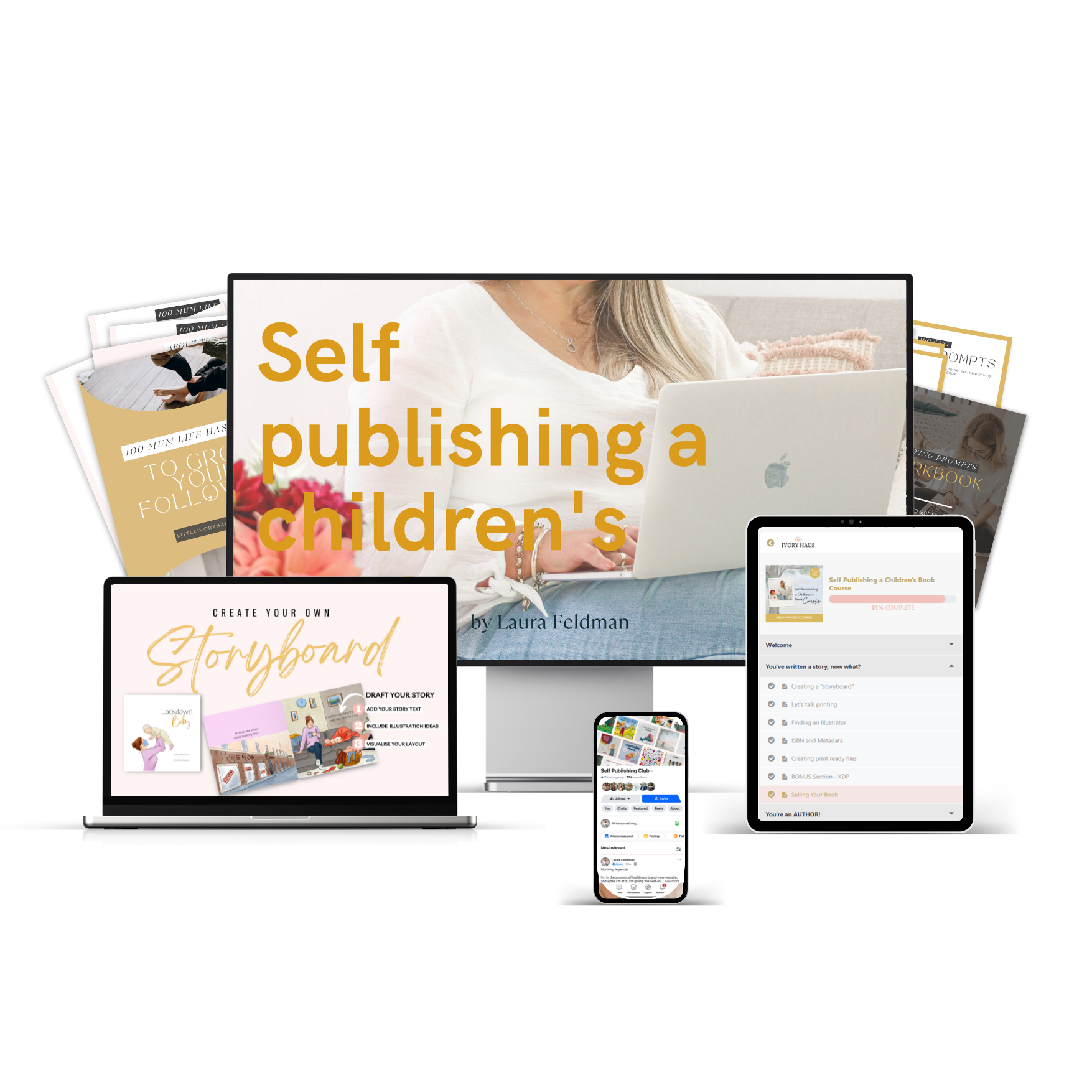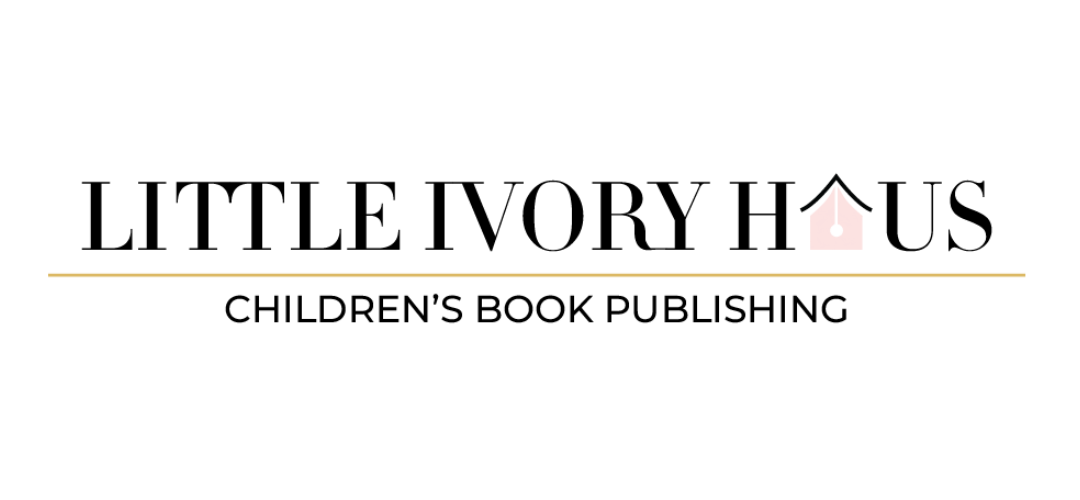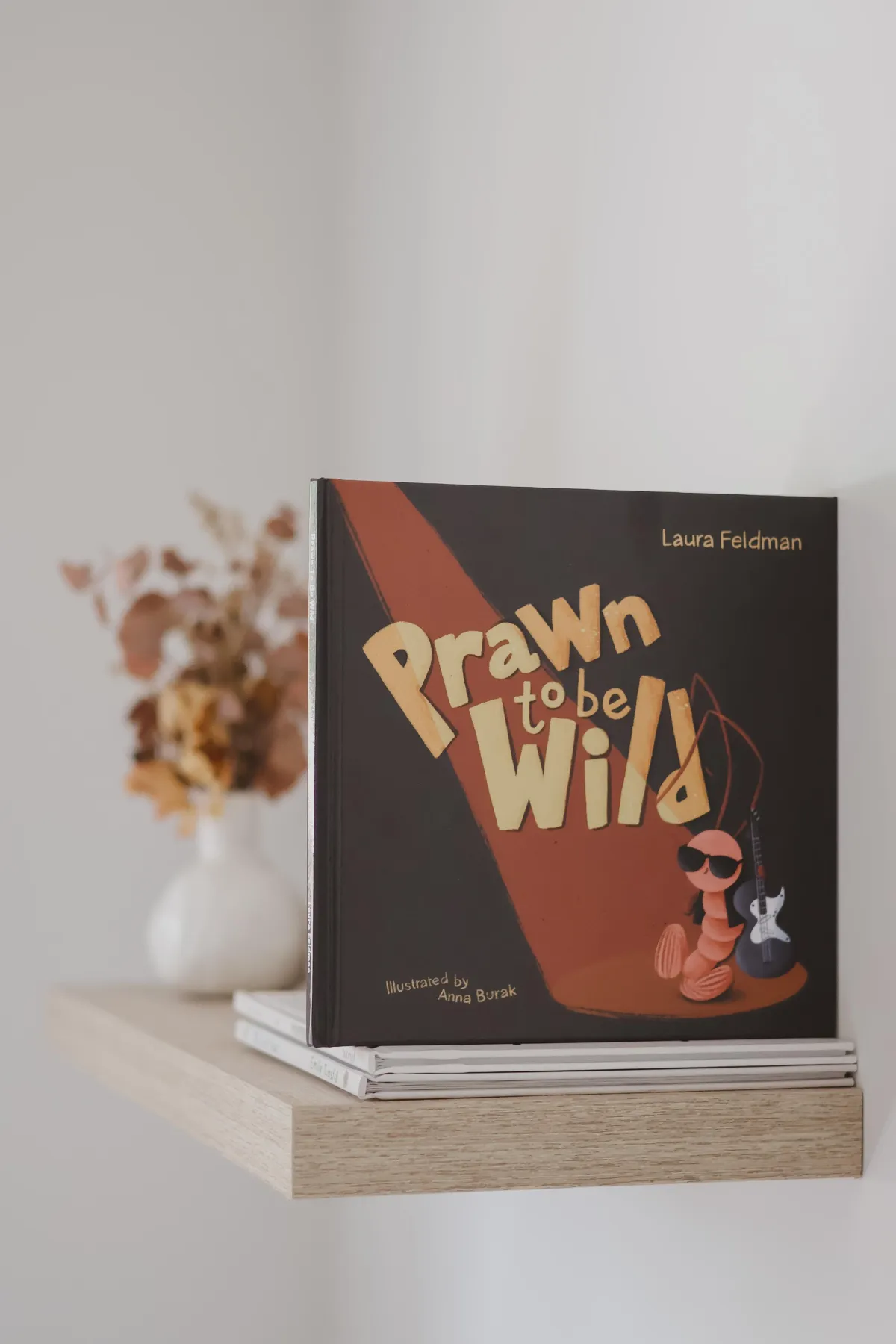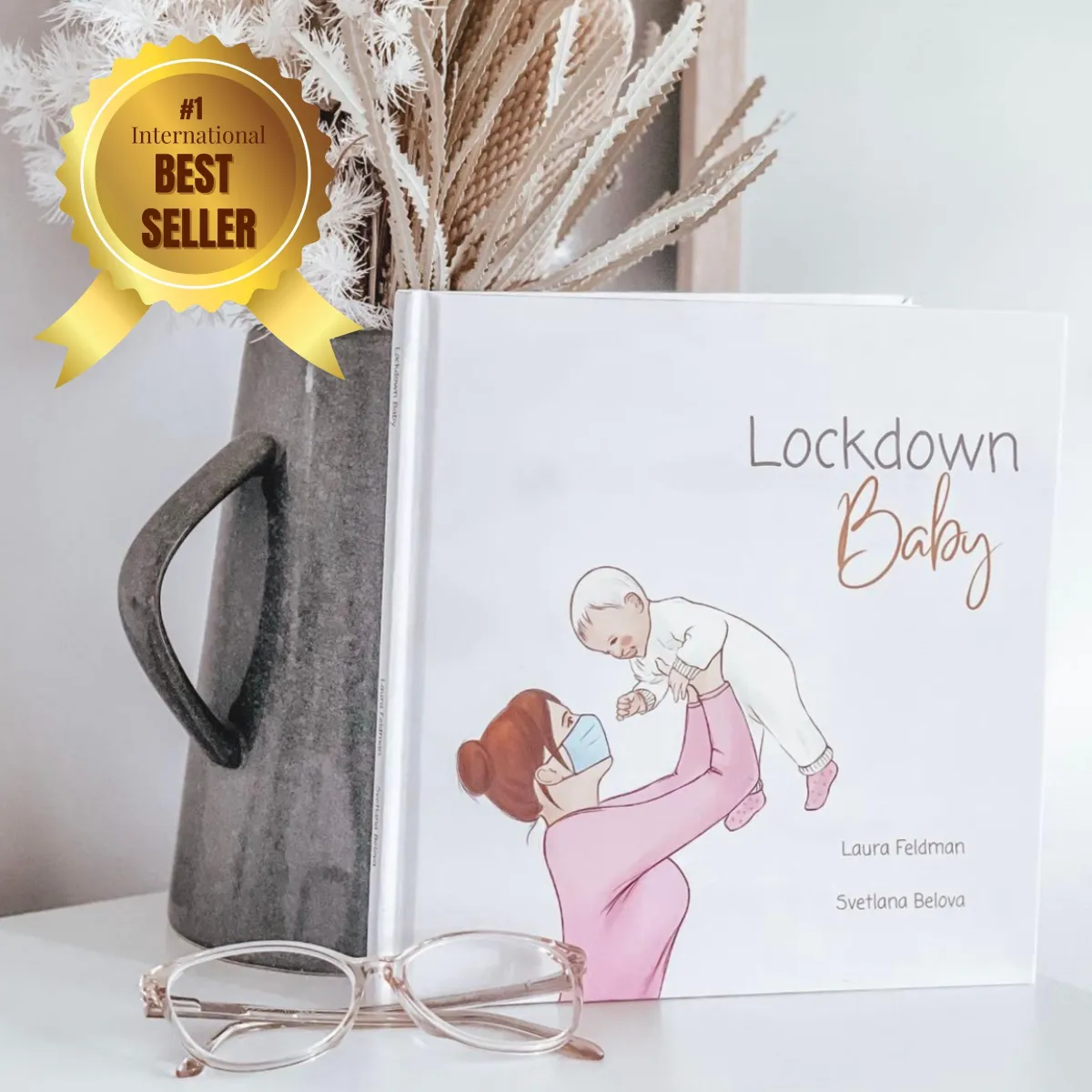The Home of Self Publishing Australia

hey! i'm laura... your self publishing bestie
I help every day people bring their children’s book to life - and into the hands of little readers.
The Home of Self Publishing Australia
Your story starts here...
hey! i'm laura... your self publishing bestie
I help every day people bring their children’s book to life - and into the hands of little readers.
watch my free training
How to get started with writing your very own children's picture book.
A fun, practical online masterclass. Beginner friendly.

watch my free training
How to get started with writing your very own children's picture book.
A fun, practical online masterclass. Beginner friendly.

MEET THE FOUNDER & CEO
Hey, I'm Laura!


I’m a bestselling children’s book author, publishing coach, and the founder of Little Ivory Haus, where I help aspiring authors turn their picture book dreams into reality!
I live in country Victoria with my husband and two kids.
My journey started in 2021 with my first book, Lockdown Baby and since then, I’ve been on a mission to help bridge the gap for creatives who want to publish a book but don't know how.
With a growing community of 1400+ passionate creatives and HUNDREDS of books in progress this year, Little Ivory Haus is all about making self-publishing fun, accessible, and empowering.
I believe that everyone has a story worth sharing, and I love proving that publishing a book isn’t just possible—it’s life-changing!
When I'm not doing "book things", I love to go camping with the fam (preferably somewhere warmer than Ballarat!), hang out at home, or make stuff (I'm a fiend for any kind of crafty or creative hobby!).
It's time to get your story out of your head and into a book!
Go from idea to your own printed book in less than 60 days
The home of self-publishing Australia
AUSTRALIA'S MOST TRUSTED SELF PUBLISHING SERVICES AND EDUCATION PLATFORM

Little Ivory Haus has helped over 1400 aspiring authors publish their books.
Over 17,000 creatives have attended one of our online masterclasses
Over 600 children's book titles are currently in print with many more to come!
Have you been dreaming of writing your own children's picture book some day?
Check out all the different ways we can help you.
BOOKS BY AWARD-WINNING AUTHOR LAURA FELDMAN
✶ AWARD WINNING SELF PUBLISHING PROGRAM ✶
Check out our
Author Services
Free Online Training

Free online training for aspiring authors.
Whether you're dreaming of writing your first book or an experienced author looking to level up your marketing skills, our online training has you covered.
3 Secrets to Writing a Successful Children's Book
Level Up Your Marketing Game as a Self Published Author
Online Programs

Turn your idea into a published children's book! Our self-paced online course guides you through everything that comes next after writing your story—finding an Illustrator, formatting, printing, and launching your book with confidence.
Ready to sell more books? M101 teaches you how to market like a pro, covering everything from social media and email marketing to creating high-converting Meta ads. Whether you're just starting or looking to scale, this is your roadmap to success!
1:1 Author Services

Need personalised guidance on your self-publishing journey? I offer one-on-one services tailored to help you perfect your manuscript and bring your book to life.
Editing Services
Formatting
Printing Services
Marketing
Mentoring
Let’s make your book the best it can be!
✶ TRUSTED BY OVER 1400 AUSTRALIAN AUTHORS ✶
✶ Testimonials ✶
some kind words from our community
“
Marketing 101
Laura created the tool for marketing. All you need to do is follow its steps and watch the magic happen.
In addition; if you find yourself a little stuck Laura is always there to help you out with her experience and expertise.
Thank you Laura
★★★★★
— Nina Pecnik
“
Marketing 101
I only wish I hadn't wasted so much time and money before I found Lauras course. I learnt so much information quickly and effectively. And the templates gave me that extra confidence and boost to stay motivated and push on…
loved it.
★★★★★
— Lisa Cheal
“
Self Publishing a Children's Book Course
I am so inspired after completing this course. Writing has always been a passion of mine, and Laura provides such an easy step by step process and support through the exclusive Facebook group. Highly recommend this course if you've ever dreamt about writing your own book.
★★★★★
— Aneleise
“
Self Publishing a Children's Book Course
Laura’s ‘Self Publishing a Children’s Book’ course is awesome. Her step by step easy plan along with Facebook group support allowed me to go from ‘one day I will do that’ to published book in 3 months. I loved the process and am very thankful to have happened upon Laura’s great course!
★★★★★
— Sylvia
“
Self Publishing a Children's Book Course
I highly recommend this course! Laura and the community are amazing. I've made friends, become an author of multiple books and feel like I have achieved so much all because I signed up for this course!
★★★★★
— Lisa McArthur-Collins
100% risk free - 24 Hour Cooling Off Period
Self Publishing a Children's Book Course
Award-winning, step-by-step online program that teaches you how to publish your very own children's picture book







